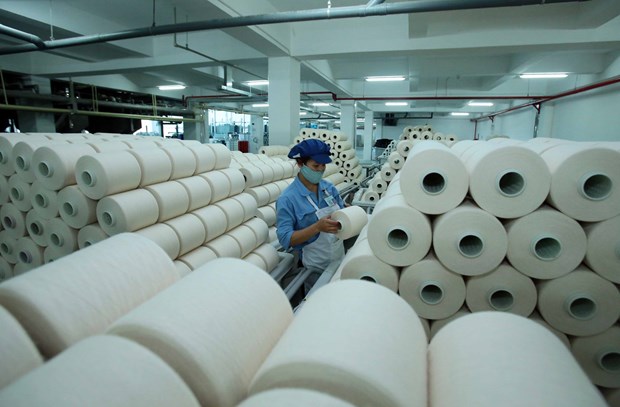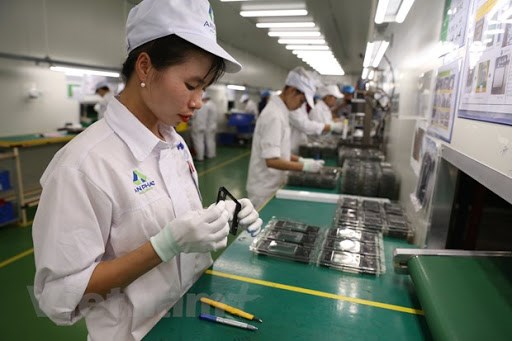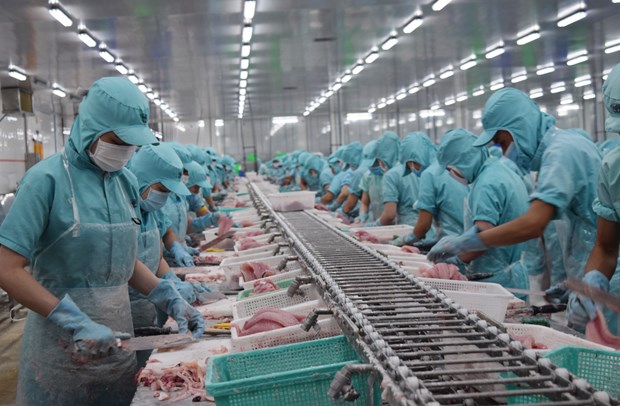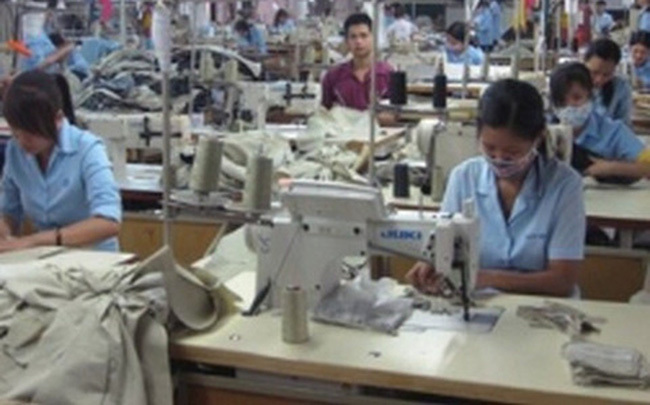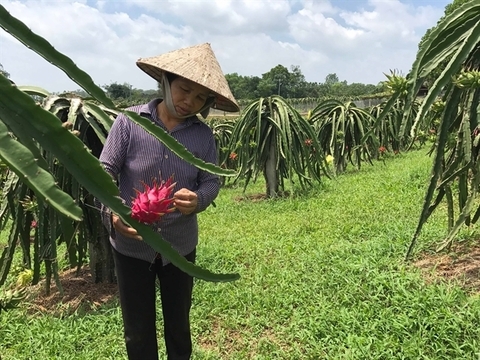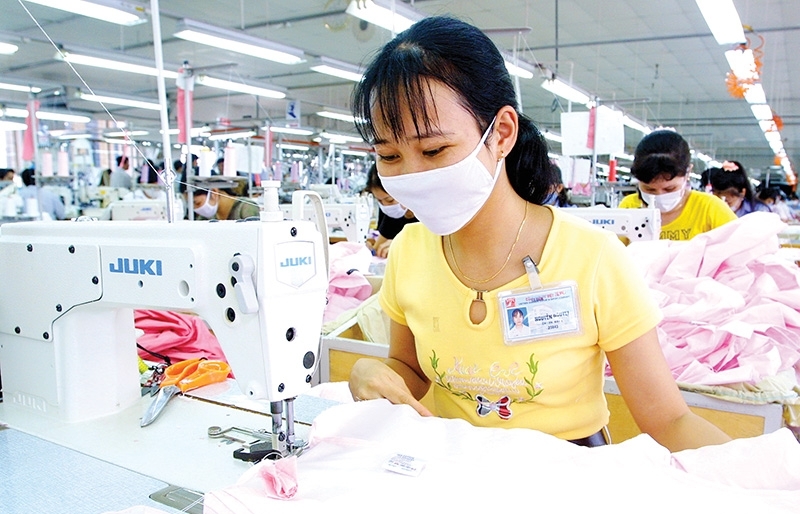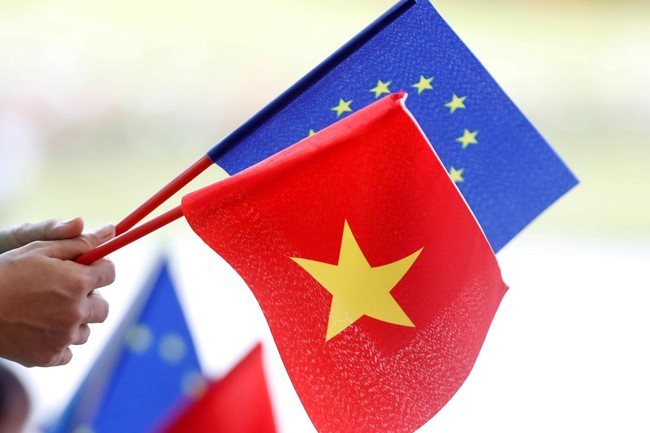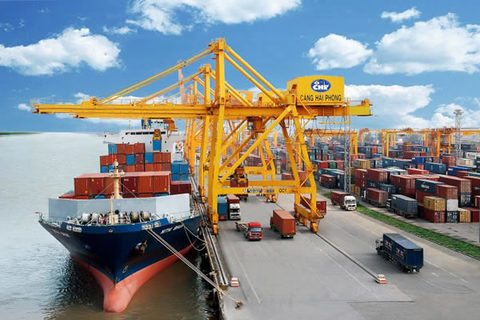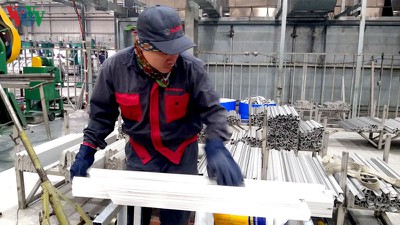- © Copyright of Vietnamnet Global.
- Tel: 024 3772 7988 Fax: (024) 37722734
- Email: evnn@vietnamnet.vn
EVFTA
Update news EVFTA
EVFTA to grow Vietnam’s fertilizer industry
 Free trade agreements, including the latest one signed between Vietnam and the EU, will benefit the domestic fertilizer sector, with more diverse import and export markets, experts said.
Free trade agreements, including the latest one signed between Vietnam and the EU, will benefit the domestic fertilizer sector, with more diverse import and export markets, experts said.
Local fertiliser industry to benefit from EVFTA
 Free trade agreements (FTA), including the latest one signed between Viet Nam and the EU, will benefit the domestic fertiliser sector, with more diverse import and export markets, experts said.
Free trade agreements (FTA), including the latest one signed between Viet Nam and the EU, will benefit the domestic fertiliser sector, with more diverse import and export markets, experts said.
COVID-19 presents opportunities to attract more FDI
 The COVID-19 pandemic has had a serious impact on Vietnam’s economy but it’s also believed to create the conditions to attract more FDI as there have been signs of a switch in capital flows away from China and to ASEAN member countries.
The COVID-19 pandemic has had a serious impact on Vietnam’s economy but it’s also believed to create the conditions to attract more FDI as there have been signs of a switch in capital flows away from China and to ASEAN member countries.
Vietnam accelerates process to put EU trade deal into operation
 The European Union (EU) – Vietnam Free Trade Agreement (EVFTA) will officially take effect for both the EU and Vietnam after the National Assembly ratifies and the two sides complete the notification procedures under the agreement.
The European Union (EU) – Vietnam Free Trade Agreement (EVFTA) will officially take effect for both the EU and Vietnam after the National Assembly ratifies and the two sides complete the notification procedures under the agreement.
Pandemic presents opportunity for Vietnamese enterprise restructuring
 The fact that nearly 35,000 enterprises have now withdrawn from the market three months after the COVID-19 outbreak first appeared in Vietnam reveals the huge impact it has had on business and production.
The fact that nearly 35,000 enterprises have now withdrawn from the market three months after the COVID-19 outbreak first appeared in Vietnam reveals the huge impact it has had on business and production.
Little promise in outlook for Vietnam's Q2 exports to US, EU
 The COVID-19 pandemic has already made it quite difficult for Vietnamese goods to enter the US and EU markets and the outlook for the second quarter is also gloomy, according to Cong Thuong (Industry & Trade) newspaper.
The COVID-19 pandemic has already made it quite difficult for Vietnamese goods to enter the US and EU markets and the outlook for the second quarter is also gloomy, according to Cong Thuong (Industry & Trade) newspaper.
VN textile and garment shares lose appeal
 Textile and garment companies are facing double problem: they find it difficult to import input materials and cannot export their goods.
Textile and garment companies are facing double problem: they find it difficult to import input materials and cannot export their goods.
EVFTA remains guiding light in mitigating trade depletion
 The European Union entry ban on its wide borders comes in a crucial year for Vietnamese exporters to the EU, leading to the EU-Vietnam Free Trade Agreement to become ever more important for both sides in the year to come.
The European Union entry ban on its wide borders comes in a crucial year for Vietnamese exporters to the EU, leading to the EU-Vietnam Free Trade Agreement to become ever more important for both sides in the year to come.
Free trade agreement a priority for Swiss ties
 As one of the large European investors in Vietnam, Switzerland currently negotiates a free trade agreement with Vietnam so that its companies can invest more in untapped fields in the Southeast Asian country.
As one of the large European investors in Vietnam, Switzerland currently negotiates a free trade agreement with Vietnam so that its companies can invest more in untapped fields in the Southeast Asian country.
Vietnamese enterprises look forward to urgent help
 Businesspeople say the impact of the COVID-19 epidemic on enterprises has been ‘beyond imagination’.
Businesspeople say the impact of the COVID-19 epidemic on enterprises has been ‘beyond imagination’.
National Assembly plans to ratify EU trade deal at next meeting
 The European Union – Vietnam Free Trade Agreement (EVFTA) will be submitted to the National Assembly for discussion and ratification at the NA’s next meeting expected to open on May 20, and preparations are well underway.
The European Union – Vietnam Free Trade Agreement (EVFTA) will be submitted to the National Assembly for discussion and ratification at the NA’s next meeting expected to open on May 20, and preparations are well underway.
Textile makers skirt virus disruptions
 Temporary factory closures and imminent layoffs are going to push textile and garment enterprises into deep water due to a lack of raw materials as well as mass order cancellations from European and American buyers.
Temporary factory closures and imminent layoffs are going to push textile and garment enterprises into deep water due to a lack of raw materials as well as mass order cancellations from European and American buyers.
European Council passes final procedure for EVFTA
 The European Council on March 30 passed a decision to ratify the EU-Vietnam Free Trade Agreement (EVFTA), paving the way for the deal to come into force.
The European Council on March 30 passed a decision to ratify the EU-Vietnam Free Trade Agreement (EVFTA), paving the way for the deal to come into force.
Two textile and garment companies to benefit the most from EVFTA
 TNG Investment and Trading JSC (TNG) and Thanh Cong Textile Garment Investment JSC (TCM) are expected to benefit the most from the EU-Vietnam FTA (EVFTA), according to Bao Viet Securities.
TNG Investment and Trading JSC (TNG) and Thanh Cong Textile Garment Investment JSC (TCM) are expected to benefit the most from the EU-Vietnam FTA (EVFTA), according to Bao Viet Securities.
Covid-19 crisis leads to opportunity to expand markets
 2020 is a special year for Vietnam because of the 4.0 industry revolution and Covid-19 outbreak.
2020 is a special year for Vietnam because of the 4.0 industry revolution and Covid-19 outbreak.
Banks face bad debt risks amid pandemic
 After two years of strong recovery and high growth, the banking sector is facing major challenges because of Covid-19.
After two years of strong recovery and high growth, the banking sector is facing major challenges because of Covid-19.
Is Vietnam’s ready-made food prepared for the Chinese market?
 The Covid-19 crisis, which has paralyzed many factories in China, offers an opportunity for Vietnam’s processed food to penetrate the 1.4 billion consumer market.
The Covid-19 crisis, which has paralyzed many factories in China, offers an opportunity for Vietnam’s processed food to penetrate the 1.4 billion consumer market.
Vietnam calls for investment in fruit, vegetable processing
 Vietnam is in need of major investors in fruit and vegetable production in order to boost processing, especially in the packaging and post-processing stages, to preserve products for longer and enhance their value.
Vietnam is in need of major investors in fruit and vegetable production in order to boost processing, especially in the packaging and post-processing stages, to preserve products for longer and enhance their value.
VN businesses keen to remove hurdles amid COVID-19 epidemic
 Management agencies have put in place drastic steps in a bid to support businesses as they actively seek out sources of raw materials to be used in production whilst boosting trade promotion activities.
Management agencies have put in place drastic steps in a bid to support businesses as they actively seek out sources of raw materials to be used in production whilst boosting trade promotion activities.
EVFTA paves way for European investors to contribute capital to Vietnam’s banks
 Within five years from the day the FTA takes effect, Vietnam pledges to consider European credit institutions’ proposals to allow them to hold up to 49 percent of shares in two Vietnamese joint stock banks.
Within five years from the day the FTA takes effect, Vietnam pledges to consider European credit institutions’ proposals to allow them to hold up to 49 percent of shares in two Vietnamese joint stock banks.


